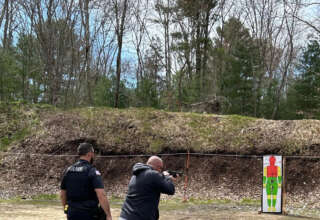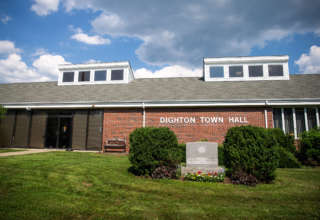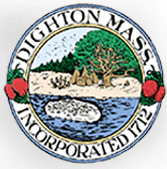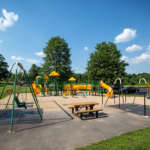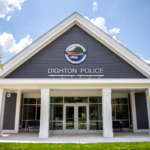In observation of Domestic Violence Awareness Month, Chief Shawn Cronin and the Dighton Police Department shares information about the warning signs of elder abuse and resources for those who may be experiencing or witnessing elder abuse.
Every October, the National Coalition Against Domestic Violence organizes Domestic Violence Awareness Month in an effort to raise awareness and educate the public. In recognition of this month, the Dighton Police Department will be sharing a series of communications relating to domestic violence with a focus on different communities each week. This week’s focus is domestic violence in senior populations.
The following information is courtesy of the National Institute on Aging:
What is Elder Abuse?
Elder abuse is defined by the National Clearinghouse on Abuse in Later Life as “abuse, neglect, abandonment, or financial exploitation of an older individual by another person or entity who has a trust-based relationship with the older adult or, any harm that occurs because an older person is targeted by a stranger based on their age or disability.”
Elder abuse can be at the hands of family members, strangers, health care providers, caregivers, or friends. Abuse can include the following:
- Physical Abuse: Physical abuse occurs when someone causes bodily harm to another individual. Bodily harm includes hitting, pushing, slapping, and anything else that results in bodily injury. It can also include restraining an elderly individual against their will.
- Emotional Abuse: Emotional abuse, also referred to as psychological abuse, can include hurtful words, yelling, threatening, or repeatedly ignoring an elderly adult. Isolating an individual and keeping them from friends or relatives is also considered emotional abuse.
- Neglect: Neglect occurs when a caregiver doesn’t respond to an elderly individual’s needs, including physical, emotional, and social needs. Neglect can include withholding food, medications or access to health care.
- Abandonment: Abandonment is considered leaving an elderly individual in need of care alone without planning for their care.
- Sexual Abuse: Sexual abuse may involve forcing an elderly individual to watch or be part of sexual acts. Sexual harassment is also considered abuse.
- Financial Abuse: Financial abuse occurs when money or belongings are stolen from an elderly individual. Financial abuse can include forging checks, taking someone else’s retirement or Social Security benefits, or using a person’s credit cards and bank accounts without their permission. Changing names on a will, bank account, life insurance policy, or any other official document without permission can also be considered financial abuse.
What are the Signs of Elder Abuse?
- Stops taking part in activities he or she enjoys
- Looks messy, with unwashed hair or dirty clothes
- Has trouble sleeping
- Loses weight for no reason
- Becomes withdrawn or acts agitated or violent
- Has unexplained bruises, burns, cuts, or scars
- Has broken eyeglasses/frames, or physical signs of punishment or being restrained
- Develops bed sores or other preventable conditions
- Lacks medical aids (glasses, walker, dentures, hearing aid, medications)
- Has an eviction notice for unpaid rent, notice of late mortgage, or home eviction
- Has hazardous, unsafe, or unclean living conditions
- Displays signs of insufficient care or unpaid bills despite adequate financial resources
Elder abuse often requires intervention. If you see signs of abuse, try talking with the older adult to find out what’s going on. If you believe someone may be a victim of abuse, you can file a MA Adult Protective Services Report online or call 800-922-2275.
For immediate assistance in the Dighton area, contact the Department’s Civilian Police Advocate Stephanie Gendreau at 774-434-1746.
Additional resources for reporting elder abuse include:
- In an emergency, call 911.
- For anonymous, confidential help available 24/7, call the National Domestic Violence Hotline at 1-800-799-7233 (SAFE) or 1-800-787-3224. If you’re unable to speak safely, you can chat online, or text LOVEIS to 22522. Additional crisis organizations and helplines can be found by clicking here.
- SafeLink is Massachusetts’ statewide 24/7 toll-free, multilingual hotline and a resource for anyone affected by domestic violence. SafeLink’s 24-hour hotline is available by calling 877-785-2020.
###




